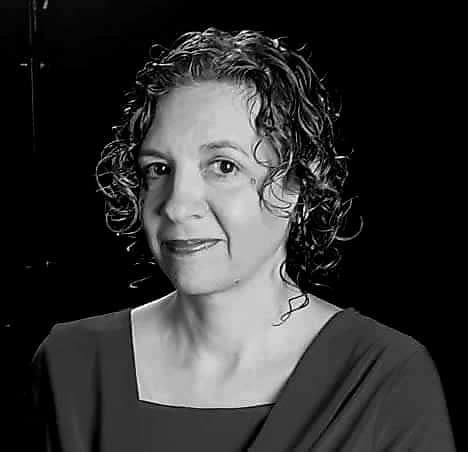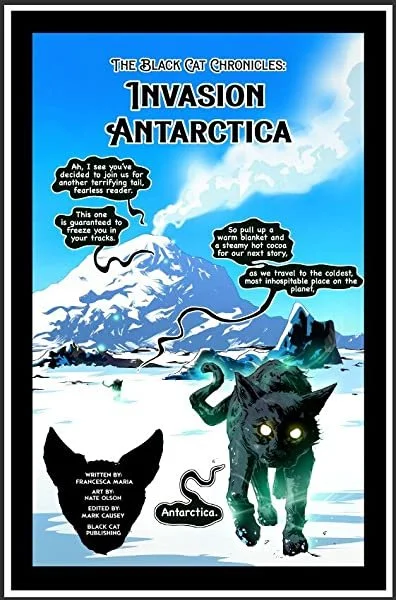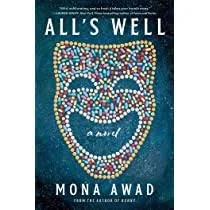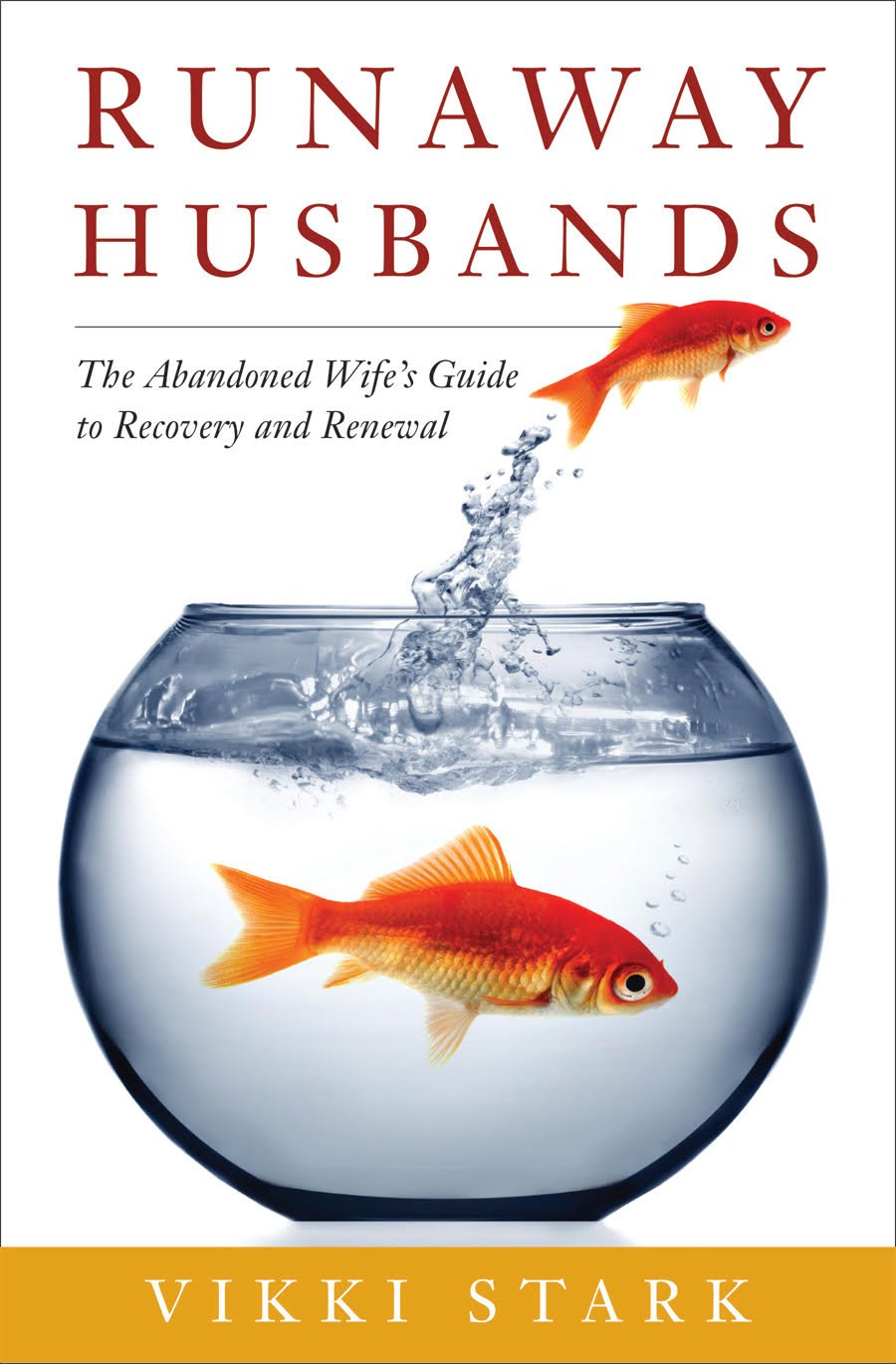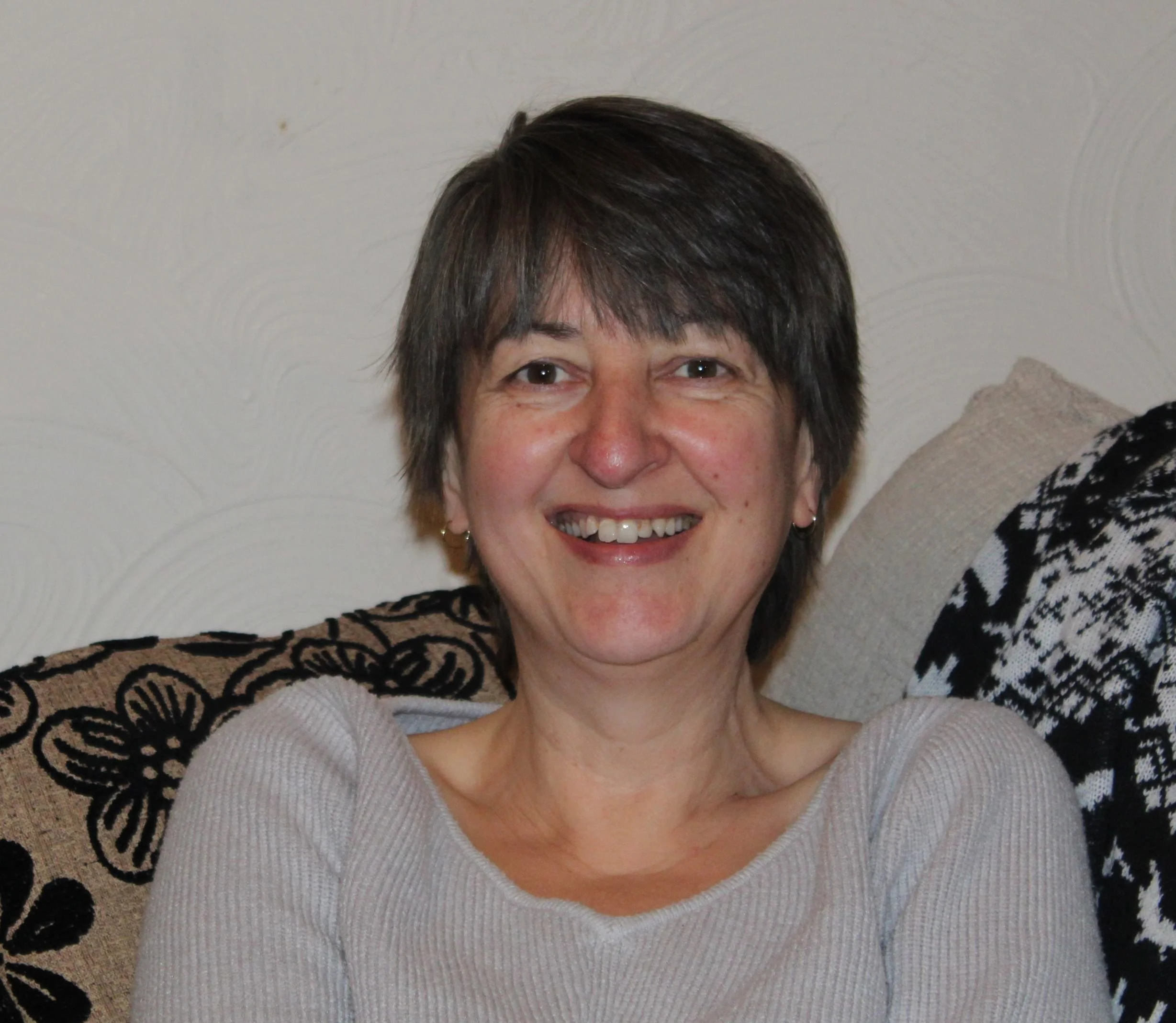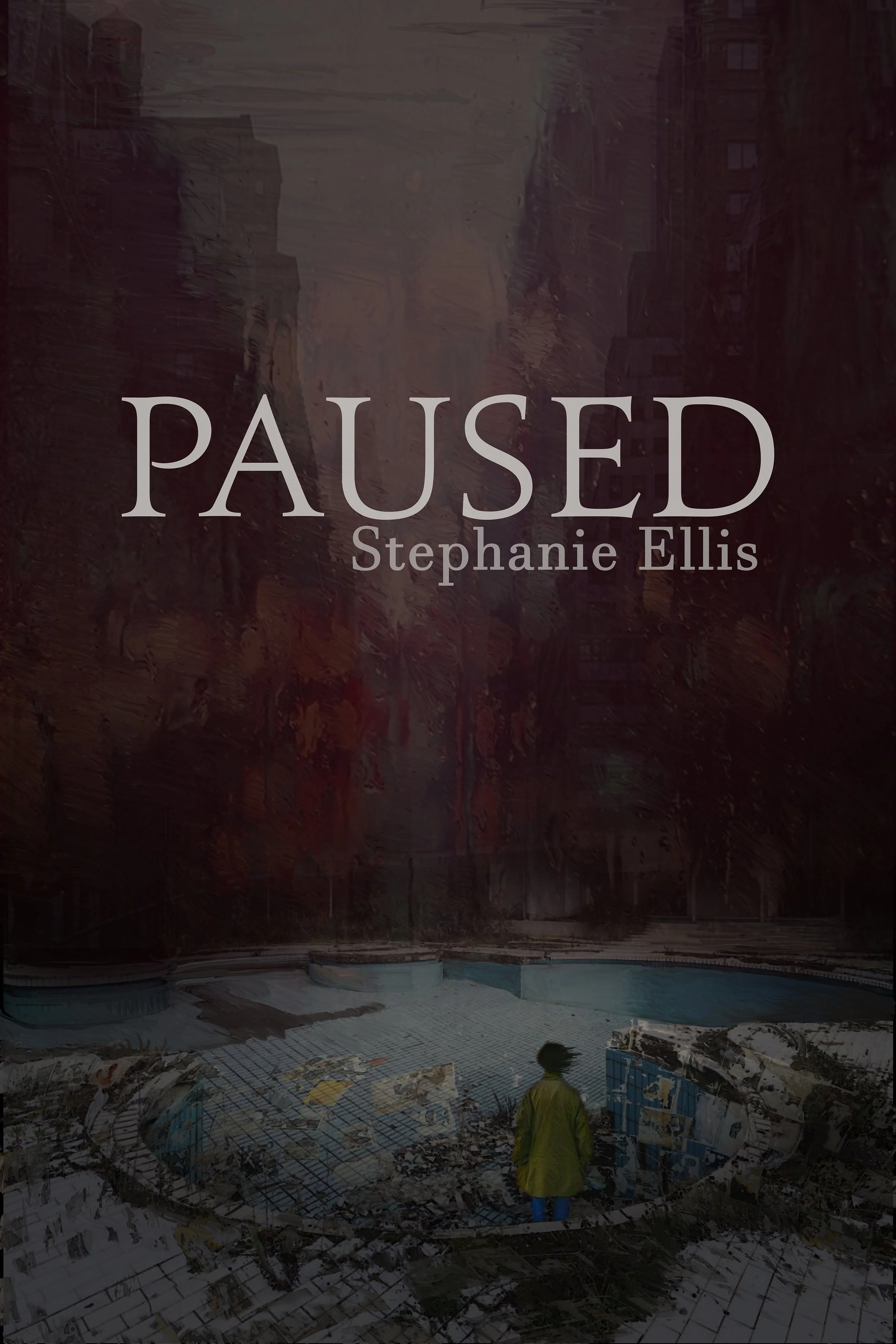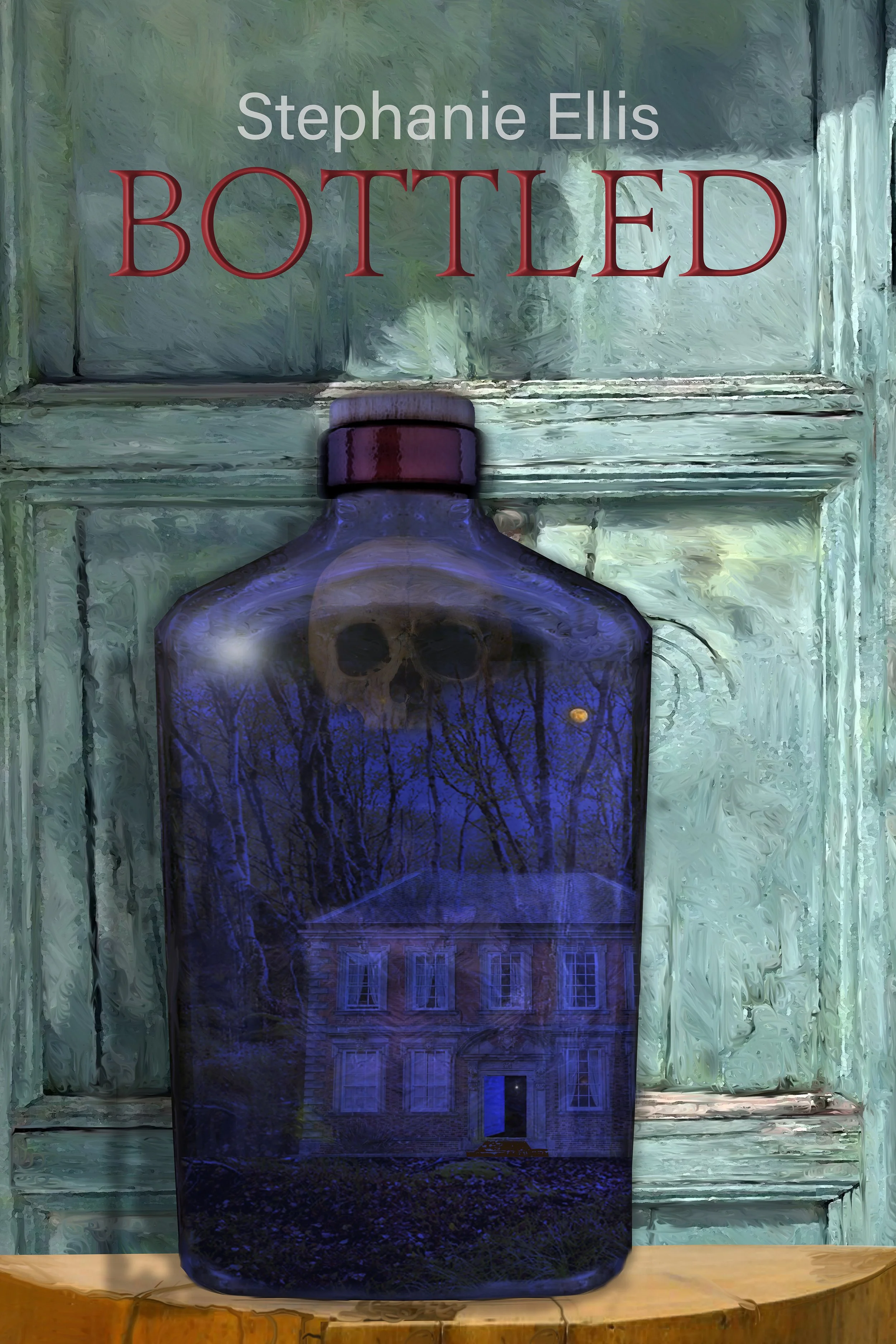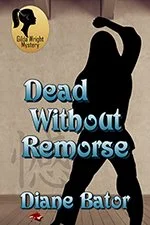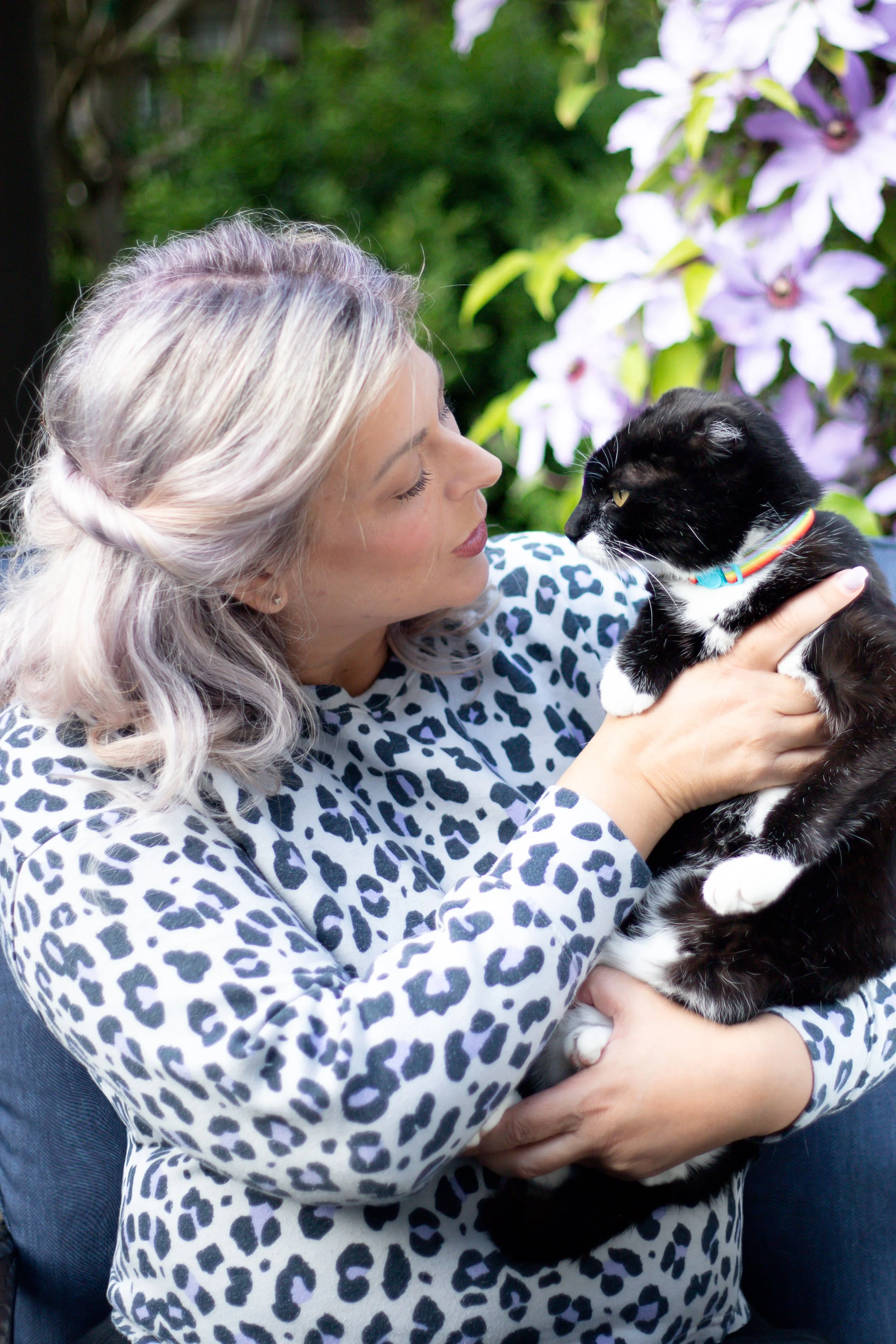Year One
ONE
I don’t know when the plane ends and the airport begins. Dressed in at least two layers too many for late June in New York. I follow my overdressed Mom, who follows my overdressed Dad, as he hauls my half-blind Grandma across the ocean and now off the plane. Where is the exit? It was easy in Shannon, Ireland-there were airstairs, and so the airplane and land were clearly demarcated. Now, finally, here, in America, there’s just colorless carpet and more carpet.
I’m hot. Itchy, at least. My back is on fire, but I know better than to bring up the discomfort to the grownups. I am layered with bleached, high-waisted, and acid-washed jeans I’d proudly inherited from my sister worn on top of another pair of pants, a purple plaid blazer with shiny lapels layered on top of the prized Polish sweater, also inherited from my sister. I keep on walking, expecting to see the end of this airport somewhere ahead. My feet are soaked from sweat and stuffed into leather sandals. They hurt as if the sandals had shrunk en route. I’d been sitting for too long. I’d been awake for too many hours. The creepy crawlers in my chest are already running amok. I saw no skyscrapers on approach, like in all the movies, and now this never-ending airport. Along the way I see stalls and officials in uniforms. Someone stops Dad and thrusts a folder to the hand that’s not holding Grandma up. She is basically holding on surfboard style. How did all these people get on the plane? Because, still! Still there are no stairs, no blacktop, and no airport building in sight.
The voices-they take me by surprise. In a fog of words too incomprehensible to register as anything other than white noise, they pierce their way through the crowd, halting all four of us in our tired tracks.
“Yasha!” screams half a dozen people of various heights and widths charging at us.
There are hugs, embraces, and an oversized chocolate bar shoved into my hands. I’m still hot and recognize only two out of the six people currently assaulting us. This isn’t the arrival I spent all of last year imagining. It’s dark, in what I now understand to be JFK’s airport terminal, and the last thing I’d ingested was some airplane juice a couple of hours ago. The conditions cannot possibly be less favorable for my grand debut on American soil. I don’t have time to contemplate how many more things my imagination has been wrong about. Before I can ask my father who most of these people are, my mother, my Grandmother, and I are stuffed into a boat of a car with the only two people I’d recognized when accosted earlier. Meanwhile, Dad is ushered into something called a minivan with his cousins (whom I’d never met) and brother (met once, at the age of five). Who has our luggage? Did our custom-made fabric suitcases ever make it off the plane? I have no way of knowing this as I still don’t know how we ever got off the plane.
Our hefty chauffeurs throw English words around as their waddling car, with its ceiling fabric hanging loose and low, winds its way through airport traffic and up and down multiple figure-eight ramps. I understand some of these words, so that’s encouraging. The words are mostly “no” and “exit,” so that’s easy, of course. But still, I’ve been informed, repeatedly, that children are like sponges, and a new language is supposed to come to us quickly and easily. I am eleven. Do I count?
Surely, I will see some skyscrapers on the ride over to my paternal Grandmother’s house, I tell myself, breaking off pieces of my jumbo chocolate bar and shoving them into my mouth with less grace with each incoming square. The raspberry jam filling, a first for me, matches my blazer when some of it oozes out onto my fingers. Eating it passes the time as I take in the landscape around me. The buildings are all brown, not glassy. They are not skyscrapers by any measure. And the sky above us is thick, the sun obviously somewhere behind the stubborn clouds. How can it be so hot when the sky is so bleak?
“Sarra lives in a studio,” our old neighbor Leeza says, her torso twisted in our direction in the backseat. I hardly remember this woman from when we lived next door to her, on the top floor of the five-story walkup when we first moved to Belarus. I don’t remember the time she had to call the police when a drunk man broke into our apartment and we had no phone line to call for help. I know of her. Most of my memories really belong to my parents. These people are known as good, solid folk. They’d made their leap to the States roughly three years before us, an entire lifetime.
Studio. Now that sounds American! Grandma has always been crafty. She is way more gifted in the visual and the culinary arts than my college-educated (and currently significantly visually impaired) maternal Grandma sitting on the other side of Mom in this backseat, But why she would need a studio is beyond me. Still, the concept of a studio sounds exciting. Now, we’re talking! I’m imagining high ceilings and canvases. Even the sweat continuously trickling down my back seems a little cooler at the thought.
My Grandmother is outside when we arrive. The white van with custom plates containing my Dad and his family had already arrived ahead of us. The entire delegation is now on the sidewalk, in front of what I imagine to be the building housing my Grandmother’s infamous studio. Besides Dad, Grandma is the only one I recognize here. Sure, I’ve heard stories of my Dad’s family living here. But, outside of names, I have nothing to go on. I have no rolodex of faces to match to the roster.
It’s not a skyscraper. It’s a beige six-story building on a street lined with cars, nose to rump, colors and sizes galore. I suddenly realize that I’m hungry and outside in the daylight for the first time since our layover in Ireland. The chocolate bar is still sticky on my teeth. I understand that I may also be thirsty. My plump Grandma, overjoyed to have so many mouths to feed, tells me to go on inside. Excited to see this studio of hers, I all but prance in the direction of the building door, throwing my weight, all my layers, against it, but it doesn’t budge. Pain stabs my shoulder, but the door is still closed. There’s practically a rebound, causing me to stumble backward onto the curb. The rejection of it sends moisture to my sleepless, tired, eyes in seconds. Suddenly I am a toddler, I want to run back to Mommy, but all I hear behind my back are chortles. Now everyone’s face is wet for different reasons.
My nose folds in on itself when my studio-resident Grandma finally shuffles to my rescue and opens not one, but two doors (the second one requiring a key). The building is smelly. It’s not the odor of the stale urine that was the signature of my Soviet building lobby. No, this is more complex, but none of the ingredients are known to me. Maybe something between wet sneakers, moist cigarette ashes, and unfamiliar cooking. Maybe. It’s not entirely offensive. but it’s not pleasant, either. What it is is pervasive. You can’t ignore it. I can’t. But the lobby is spacious, the ceiling tall, and the moldings ornate. It’s a literal world away from the rectangular, cement block boxes I’d grown up in. It’s beautiful. I can picture a studio here.
“Marina, do you want to take the stairs?” asks a woman with auburn hair that looks like it was styled as a pixie cut sometime in the distant past and has been thoroughly overgrown. I met her only minutes ago, but I heard of her, sure. She’d written instructional letters to us ahead of our migration, including such valuable nuggets of information as “make sure to get a haircut before coming over because haircuts in America are prohibitively expensive” and “bring needles and thread.” She’s taller than average and trimmer than most of the women who raised me. It’s nice to put a voice and a face to a name, particularly because it sounds like she already decided to like me. She’s halfway up the steep, long flight of stairs. “It’s only three flights.”
“Isn’t there an elevator?” I ask, hesitating between the woman I now know is my Aunt Basya and my Mom. My mother has been handed the baton that is her mother sometime back at the airport and is still holding on to her. The stairs are definitely out of the question for them.
“See you up there,” the lady calls as she continues to climb, her voice too hoarse for someone who I now know never smoked. She disappears behind the second-floor banister before our delegacy boards the elevator.
Unlike all the apartment buildings I’ve ever visited, the elevator here has a door with a handle. This door, too, proves to be heavy. I’m years from learning about symbolism and metaphors, but even as a sixth grader, I feel like I should pay attention to all this resistance. Again, my Grandmother comes to the rescue, pulling the door open with ease once the one behind it slides open. We can observe the process through a diamond-shaped window in the first door. Hesitantly, we step inside. The cabin is hot pink, a stark contrast to the beige-brown, linoleum elevators I’d ridden prior to June 25th, 1994, the day of our arrival to this new land. It’s also larger. There’s a smell in here, too. A stuffy, deeply in need of being aired out odor, but again, it’s not urine, which is refreshing. The sliding door thuds closed and the box thrusts us upwards. Before those of us who haven’t ridden this thing for the past three years can shriek, the door slides open. We are informed by the sticker sign on the inside of the matching heavy door up here that we are indeed on the third floor, as promised. Pushing it open from the inside proves as difficult as pulling it open downstairs. I let Grandma Sarra do the honors, aiming to avoid embarrassing myself for the third time within minutes.
The studio I’d spent an hour picturing isn’t much of a studio at all. Certainly, not with this lighting. Turns out, a studio is just a one-room apartment. This is misleading, or at least it should be. My first residence in America would be a smelly, cavernous room with no partitions. I feel like I’ve been lied to. Our kind, old neighbors should’ve been more specific. I can feel my muscles begin to pulsate, and my skin begins to prickle. I may cry. We are quickly brought up on the apartment sizing lingo as we face a row of relatives situated behind the long table full of bowls and dishes. The smiles, the tears-they are all around, no square centimeter spared. Between all the prying eyes, the pale light in what I now understand is the only room here, and the unfamiliar mechanical noise coming from somewhere deep in the aforementioned lone room, it’s as if this non-studio is spilling. “You’re so big” comes at me from every which way. This is a lie from most of these people as they have never met me before-there is no point of reference for this to be anything but a platitude. I ask for the bathroom just as my mother’s sedatives wear off, and she begins to wail.
The bathroom is just as pink as the elevator, the tile so bright, it hurts my stale eyes. Of course, there’s a smell here too, which I already know to expect. I’m a quick study. It’s not Unclean in here, and it isn’t the food smell from the main and only room of the studio. It’s sour and heavy. I throw the shower curtain to give myself something to do after I pee. The toilet is yellow, intentionally not matching the walls. I see now that the bathtub, too, is yellow. The fact that the toilet shares this room with the sink and the bathtub is bewildering enough. There’s a window in here too! This isn’t familiar. Where I come from, the toilet room and the sink and tub room were two separate rooms with two individual doors. And there were never any windows in either. Arguments can be made to justify or condemn either design, but this isn’t what I’m thinking about. It’s also not only the shampoo and soap containers lining the windowsill that I’d seen shiny advertisements for back home and that take my breath away. Now, what at once takes over my entire being is what I see on the other side of the window-namely the iron fire escape. Those I have seen before, but only in the occasional American films my Dad would borrow from someone. We had a VCR that my Grandmother, Sarra, had brought back from her visit to the States roughly a year before her moving here. It was that VCR and a few proper Disney store t-shirts that she’d brought back from her exploratory trip where she’d visited her son (my Uncle). Much to the public dismay of his wife, the one with elevatophobia. I don’t remember any other American goods, but surely there must’ve been prized pantyhose and socks on little hangers. Grandma isn’t a fool. We didn’t watch many movies on our rare VCR, but Home Alone was my first introduction to American cinema outside the Sunday Disney hour introduced to Soviet kids roughly around the fall of the Soviet Union. There haven’t been many American films in my life, mostly TV programming limited to either Soviet films or Latin American telenovelas that had taken the entire country by storm. But I must’ve seen those metal grates somewhere because the reaction they prompt in me is physical. I stumble back away from the yellow bathtub. I wash my face and yank my crazy checkered blazer off. The mirror above the sink confirms that I look as tired as I feel. It’s been a long day.
I was excited to get on the bus to Minsk. My Uncle had arranged for us to travel with all the family and friends who wished to see us to the airport. True, I know my sister is staying behind, and I know it is going to gut my family in a permanent way, but I am leaving. Leaving! Soon I won’t be the only Jewish student in the entire school building. Soon I won’t be a “kike” with a big nose. And soon, I will be able to have access to such inaccessible things like yogurt and pizza. Even at eleven, I crave reinvention. Land of opportunities and all that. No need for tears because we are about to improve everyone’s lives. Besides for Dad, I’m most eager to leave Belarus. Grandma, my Mom’s Mom, is too, but she doesn’t speak much anymore. This makes us traitors in Mom’s eyes.
“I can’t believe we’re actually doing this,” I hear Mom tell Aunt Nadia as I walk ahead of the two, practically giddy as our last day in Belarus is coming to a close and the plane ride dawning nearer. “We’re just fine here! If Slava doesn’t see a reason to leave, why are we so special?”
Aunt Nadia is our best friend. Our families spend at least three evenings out of any given week together. A patient and wise woman, she is also a nurse with access to any and all medications our family has ever needed. And, for this expedition, Mom needs quite a few.
“Fine? How is this fine?” I demand when I stop in my tracks and whip around to face the two women. “You can’t even buy your daughter a banana!”
I don’t know why I let this escape my lips, but her raining on my “I’m leaving to America” parade leaves me seething. This seemed like a good argument when I’d hurriedly formulated it in my head. Once it is out, however, when I see Mom’s face contort, I immediately feel shallow and vain. It doesn’t help that Mom breaks into laughter that doesn't sound jovial. She certainly isn’t laughing with me. She is angry. My stomach does a flip when I turn my back to my Mom and her friend, again, my face ablaze. I quickly replay the exchange as I continue walking a few paces ahead of the grownups.
Why is she laughing? Why can’t she stop? She has no verbal retort. June 25th, 1994
But what I said was true. We can’t afford to buy bananas, or kiwis, or fancy shampoos, or this new product-tampons. Not that they are so widely available to begin with, but even when they are, they are outside our price point. And I’d never had pizza. America is where I will be able to have these things. Affordably! Dad will get a fantastic job that will make use of all of his skills. We’ll live in a skyscraper and soon my sister will see the light and join us. Mom will be happy, and Grandma will regain her eyesight. All so logical. My God, this much is obvious! Now I really can’t wait, if anything. One more night and I will be airborne.
Not surprisingly, I couldn’t sleep that last night in Belarus, the mattresses stretched across the aisles of our rented bus, passengers sleeping head to toe. I am practically exhilarated to hop off that mattress come the earliest of dawns and run through those automatic airport doors, but that’s also when mass hysteria begins.
Mom is preloaded. Our family best friend, practically our concierge doctor, rightfully planned on providing Mom with sedatives for her trip over the Atlantic. Unfortunately, she didn’t pregame early enough, and just at the metaphorical border, where our family is instructed to part, my Mom breaks down in the most guttural of cries. My sister follows suit, her new husband holding her back while I tug at Mom to keep moving. Dad is busy propping up Grandma, who would crumble without support. It’s up to me to not forget Mom on this side of the border. To blend in the chorus. I do my best to harmonize, but the higher decibel level is not something the situation requires from where I stand. We will all see each other in no time. I am sure of this. This is how the whole reunification of family works. That’s why my Dad’s entire family seemed to have moved at three-year intervals. Why the theatrics?
As a baby, I’d apparently flown lots, but all of these flights were before the age of four. I remember none of them. I have only movies to go on for any visualizing of what an airplane ride might feel like. I am guaranteed to vomit at takeoff. My Mom had warned me before the drugs kicked in, especially as I was known to hurl on car rides when I was younger. Now, Mom’s sedatives quickly setting in, she sits in the middle seat, no words escaping her now fixed lips. Grandma sits stoically at the window. Dad and I are across the aisle, me with the barf bag in hand. I keep the bag at my lips for most of the trip, my Dad distracting the both of us with nervous jibber-jabber. This is refreshing given that I’d grown up with the man mostly silent but for necessities. I have no way of knowing this yet, but the experience of the flight itself, if encapsulated, is a clear and concise summary of my year to come: blind and mute Grandma, swollen-eyed and stoic Mom, and a Dad who’d found an unexpected companion in his 11-year-old. This is a chance for him to get me on his team, and he doesn’t let that chance pass him by. He gets us to visit the cockpit when both Mom and Grandma remain unmoved. Only one of them is in this state by medical induction. And when we spend a couple of hours in Shannon, Ireland, he buys me ice cream, which costs dollars. Real-life dollars. We don’t have those to spare, arriving in the States with $3000 total, so I know not to take the gesture for granted.
Now Dad is busy being hugged by cousins he’d grown up with but hasn’t seen in decades, and I am in the bathroom for the first time since Ireland, where Mom and I embarrassed ourselves for the first time west of the proverbial Iron Curtain when we couldn’t get the sink to work. In Grandma’s pink bathroom, the faucet works just fine, but back in Shannon, there was a pedal we had to step on to get the water to run. Now, here, all I have to do is turn the hot and the cold to balance it all out, but that doesn’t make me feel better. Instead, this chilling, misshapen, previously unfamiliar blob of ice invades my chest with a decisive jab. I am no longer hot. I’m cold now. Freezing. I pull the shower curtain closed, shielding the fire escape again. My body’s buzzing. I rejoin the loud living room, wedging my way back between Grandma Anna and Mom on a wooden bench stretched across a few chairs aimed at creating more sitting space around Grandma Sarra’s crowded table.
The dishes are not exotic. Nothing in front of me is new, really. The difference is in quantities and beverages. There are salads and stews I’ve been eating since childhood, but there are more of them here. A variety we’d never had even on New Year’s Eve or a birthday. And the Sprite-that’s new. Pepsi I’ve had before. Fanta, too. This green plastic bottle, however, is new. The drink is cold and crisp. It’s refreshing. I like it and for a few minutes I feel better.
The slowing of my pulse doesn’t last, picking up with every new hello and a gush over how big I am. As the evening continues to drone on, my brain hardly processes that it’s Sunday evening now. I have barely any rest since Saturday morning in a different time zone. Fresh faces continue to come and go-saying hello, sitting down for a bite, and leaving on account of having to be up early for work the next morning. I’m on a conveyor belt. It’s hard to tell if it’s a welcome dinner or a wake.
And then it happens, the Moment the activated cloud my belly has been anticipating: a woman I know only from photographs, my cousin Alla, walks through the door. She’s tall, her black hair in a static, thick bob, and she’s smiling ear to ear as she strides towards us, practically levitating. She looks almost genuinely ecstatic to see us. I’ve never met her before.
“Hi! Welcome!”
Like her Mom’s, her voice is hoarse. Her teeth are bared, but her words are cheery. Her black eyes seem to want to connect with mine, and I want to accept the challenge. But instead, a sob escapes from my throat. I feel all eyes turn to me, but I am more surprised than any of these people by what we all know we just heard. I attempt to stifle it, mask it as a cough or a sneeze. I blow my nose demonstratively as my cousin continues grinning in my direction, unfazed. Her determination doesn't help and another sob erupts, louder than the one before. I can’t stifle this one, and I can feel my face begin to crumble, to fold in on itself. This first day of my new brilliant life is not working out. Trying to think on my feet, I attempt to mold my melting expression into a hello to my cousin. She is my Uncle’s daughter, and all I know about her is that both my Mom and my sister are convinced she is my Grandmother’s favorite. More sobs erupt, and before I can embarrass myself further in front of people I either haven’t seen in years or never met at all, I hightail it back to the pink bathroom with the rusty fire escape.
I breathe over the sink, or at least I try to, my palms gripping the sides of it. When that does nothing I run the tap ice cold and begin to rub my face. No matter what I do, I can’t seem to shut off my throat. I cry and cry harder. Something about the brunette stranger out there seems to have broken some kind of dam, and I obviously don’t have the requisite capacity to plug it back up.
There’s a knock on the door, and then a bang. It’s Mom. I’m not at liberty to pretend I don’t need help.
“What are you doing?” she hisses once inside.
“Slava,” I sob to my own surprise while Mom fiddles with the new type of door lock.
“What about her?” she breathes. She hasn’t said any words to me since we departed Minsk.
“Why? Why is Alla here when my sister is not?!” I cry, my breaths now shallow and rapid. I’m heaving.
“Darling, we knew this. She couldn’t come now,” she tries unconvincingly.
“Then I don’t want to be here!” I scream, suddenly, unable to pump the breaks, words flying out of me faster than I process the thoughts behind them.
“I don’t either,” she admits. No big revelation here. She’s been telling anyone who would listen (and even those who wouldn’t) that America is a terrible idea forced on her by her husband. “But we can’t just turn around and leave now. We have to wait.”
Not unexpected or illogical, but it’s not what I want to hear. I can’t breathe with all this pink around me. The window here is open, but there is no ventilation, no draft with the door closed. But the open window does give me an idea.
“Look!” I pant, pulling the shower curtain open. “Look!”
“What?” Mom relocates from the toilet to the edge of the bathtub. “Is there someone out there?”
“No, not now. But I saw these in movies. That’s where they sell drugs!”
I don’t know where I get that from. I haven’t even seen that many American movies. And, of the ones I’ve seen, none that I consciously remember involved drug dealing. Still, somehow, this is vivid in my memory and/or imagination. This is important.
“Darling, there are no drug dealers here,” Mom says, her tone unconvincing, and I just know there’s nothing she wants more but for there to be drug dealers out on that fire escape to give me enough credibility to justify running back.
“I want my sister!” I wail.
Grandma Sarra and Dad taking turns knocking on the door. Ashamed at failing on my first day in America. I don’t want to see anyone. I want Mom out of here, too, now that I see she’s of no help. I’m so tired.
And then Mom has an idea-the Belarussian sedatives. She zooms out and back in, armed with a pill bottle and a cup of the new green soda.
I am to swallow two, which I do.
And then it all goes black.
© Marina Raydun, 2021


